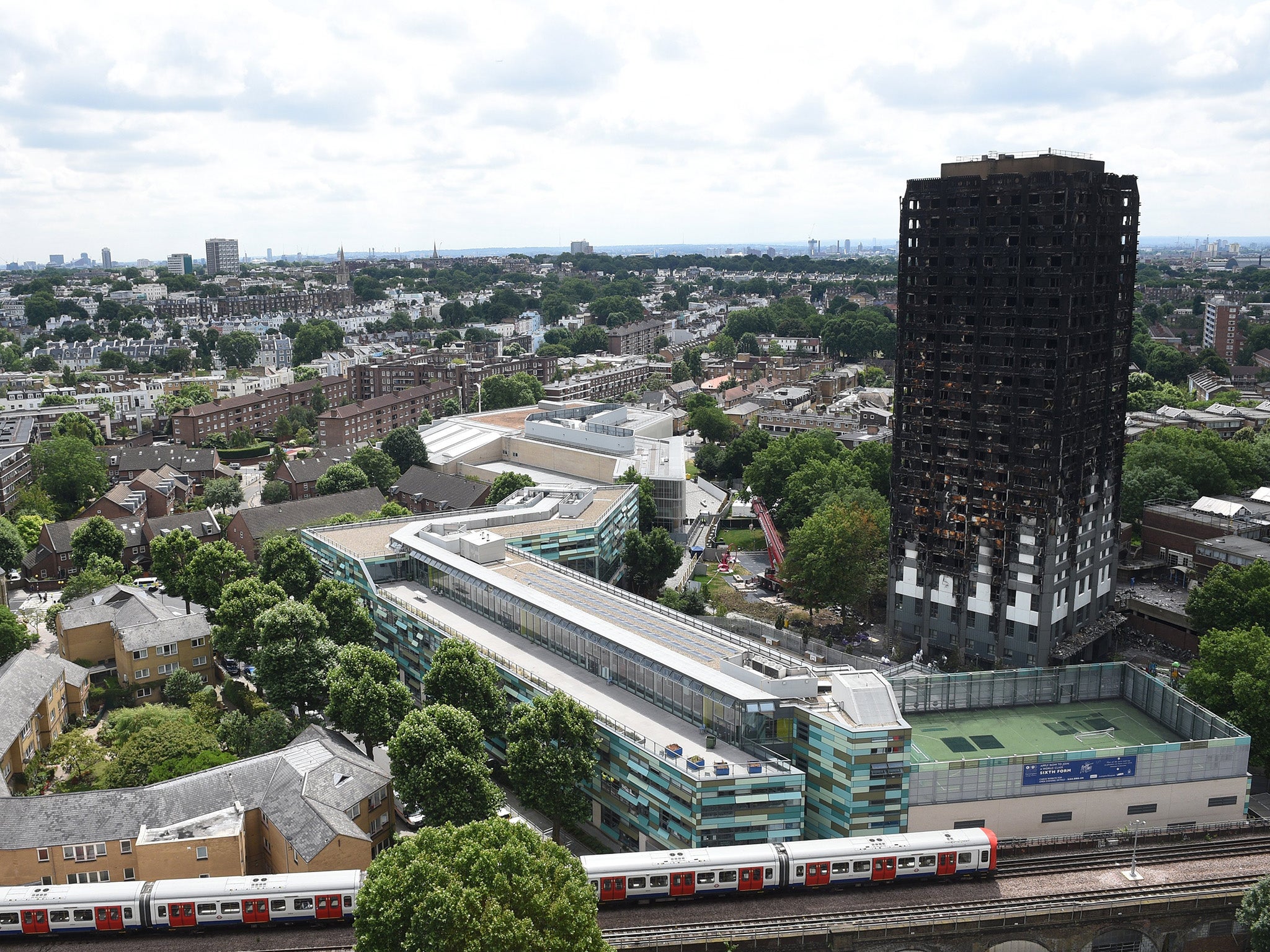Majority of Grenfell Tower victims still living in hotels five months after tragedy, Government admits
Exclusive: Almost two-thirds of families still being housed in ‘emergency accommodation’

Your support helps us to tell the story
From reproductive rights to climate change to Big Tech, The Independent is on the ground when the story is developing. Whether it's investigating the financials of Elon Musk's pro-Trump PAC or producing our latest documentary, 'The A Word', which shines a light on the American women fighting for reproductive rights, we know how important it is to parse out the facts from the messaging.
At such a critical moment in US history, we need reporters on the ground. Your donation allows us to keep sending journalists to speak to both sides of the story.
The Independent is trusted by Americans across the entire political spectrum. And unlike many other quality news outlets, we choose not to lock Americans out of our reporting and analysis with paywalls. We believe quality journalism should be available to everyone, paid for by those who can afford it.
Your support makes all the difference.Almost two-thirds of the families who lost their homes in the Grenfell Tower fire are still living in hotel-type accommodation almost five months after the blaze in which at least 80 people died, the Government has admitted.
Of the 202 households that lost their homes in the fire, 130 are still living in “emergency accommodation”, meaning hotels, bed and breakfasts and hotel-style serviced apartments.
A further 47 families are in temporary accommodation, while only 26 are living in permanent homes.
The latest figures were revealed in response to a parliamentary question from Labour MP David Lammy, whose friend, 24-year-old artist Khadija Saye, was killed in the fire.
They show that, in the 20 weeks since the fire broke out, an average of just over one family per week has been rehoused in permanent accommodation.
In June, Theresa May promised that all Grenfell victims would be rehoused within three weeks.
Responding to Mr Lammy, Alok Sharma, the housing minister, said: [The Department for Communities and Local Government] is working closely with the Royal Borough of Kensington and Chelsea to support them in ensuring that residents of Grenfell Tower and Grenfell Walk will be provided with a new home in social housing within the period of one year.
“London local authorities and housing associations have been proactive in offering accommodation and help to assist. However, it is important to get this right and ensure survivors have choice over their housing options.”
Mr Lammy called the delays in finding families suitable permanent homes a “disgrace” and suggested the teams working with victims are “totally unfit for purpose”.
He told The Independent: “Five months on from the Grenfell Tower fire we are seeing an abject failure by the state to support the survivors of this tragedy.
“It is nothing short of a disgrace that 130 households are still living in emergency accommodation in bed and breakfasts. These families have been failed by the state time and time again and it should be a source of shame for the Government and the Royal Borough of Kensington and Chelsea that so many of these families will be spending Christmas in a bed and breakfast.
“It is totally unacceptable that only one in eight families have been rehoused in permanent accommodation, and it is clear that the RBKC and DCLG teams responsible for supporting and rehousing Grenfell Tower residents are totally unfit for purpose.”
Kensington and Chelsea Council is moving “too slowly” and is offering “unsuitable” accommodation to victims, Mr Lammy added.
The Tottenham MP also asked government ministers how many children who lost homes in the fire are living in emergency or temporary accommodation, but the Government declined to provide the information. Kensington and Chelsea Council also did not provide the information when asked by The Independent.
Those working with Grenfell victims say the delays are partly a result of the fact that numerous offers made to families have been unsuitable, with some having been offered accommodation that is sub-standard or a long way from their previous home.
A spokesperson from North Kensington Law Centre, which is supporting a number of the families, said: “Grenfell survivors are dealing with grief, trauma and loss while attempting to make really important decisions about their and their family’s lives.
“It was of course welcome that the Government and the council promised to preserve Grenfell survivors’ housing rights and protections. However, almost five months on from the fire, many residents need urgent clarity from the local authority and housing association about some aspects of the tenancy agreements they are being asked to sign.
“Local residents remain very sceptical of the council’s intentions. Every time a key worker or housing officer rushes a Grenfell survivor into signing a tenancy agreement, puts pressure on them, or provides them with inaccurate information, it reinforces that sense of mistrust.”
The figures released by Mr Sharma also raise questions about the delay in helping people move into new homes even once they have accepted accommodation. A total of 35 households have accepted offers of permanent homes but are yet to move into them.
Cllr Elizabeth Campbell, leader of Kensington and Chelsea Council, said: “When families want to move out of emergency accommodation we help them do that as quickly as possible.
“We are buying 300 good quality homes before Christmas to give them as many options and choice as we can, spending £235m in the process.
“But people have to understand that we have been moving at the pace of the victims and survivors, this is not a numbers game – we are talking about traumatised families and children making very big decisions.”
Join our commenting forum
Join thought-provoking conversations, follow other Independent readers and see their replies
Comments